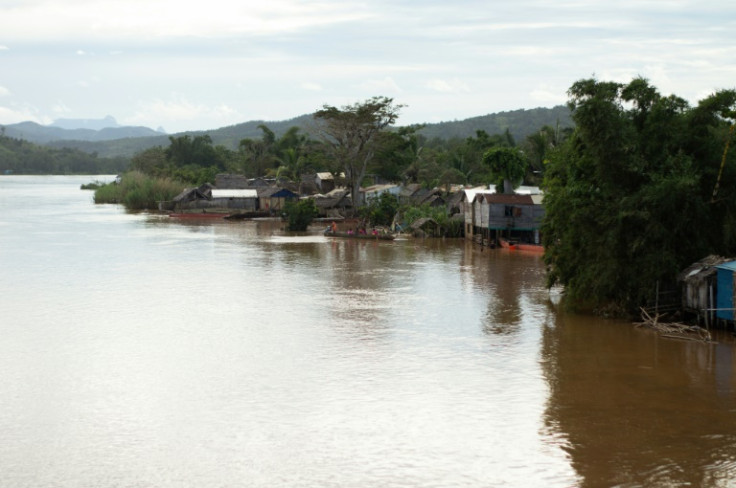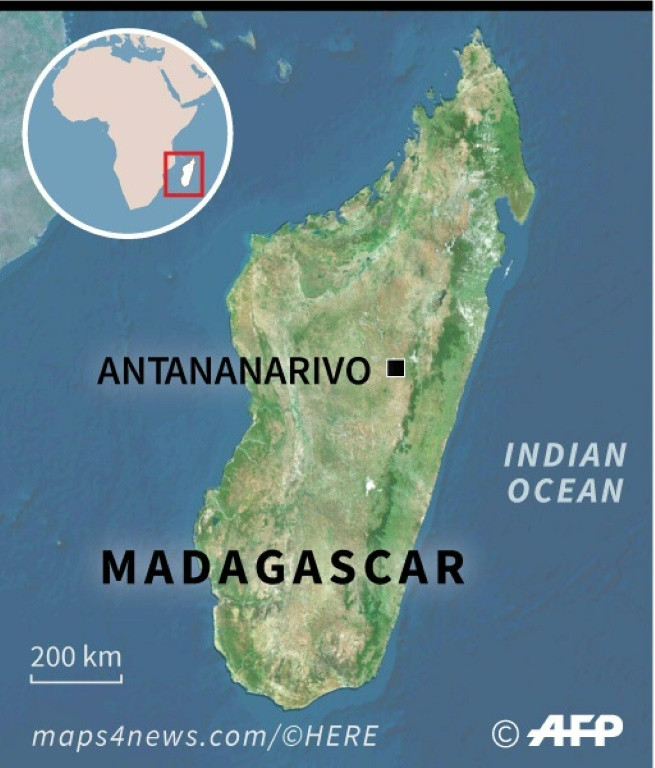Intense Cyclone Freddy Lashes Madagascar

A powerful tropical Cyclone Freddy lashed the south eastern of Madagascar on Tuesday, killing at least one person as it moved in packing winds of around 130km per hour, officials said.
A 27-year-old man drowned near the port of Mahanoro, to the north of Mananjary before the storm made landfall, according to the country's National Risk Management Office (BNGRC).
The storm made landfall at around 1630 GMT, the BNGRC said. "It has weakened further," it said in a statement.
But a BNGRC senior official Faly Aritiana Fabien told AFP it remains "one of the strongest cyclones" to hit the large Indian ocean island.
The storm landed north of Mananjary, a coastal town of 25,000 people that remains devastated by last year's Cyclone Batsirai, which killed more than 130 people across the country.
The UN's World Food Programme (WFP) said more than 2.3 million people in Madagascar could be affected by Freddy, and the cyclone would then pass through Mozambique and Zimbabwe on the African mainland.
Authorities said the island nation, which is accustomed to cyclones and tropical storms, had put measures in place to minimise loss of lives.
Several regions suspended school classes on Tuesday for the rest of the week, , according to national education ministry. In total, schools in four out of the six provinces have closed.
"As the Malagasy people, we are the most experienced country in terms of cyclones- even last year we experienced nearly six cyclones," said Fabien.
At least 8,000 people were preventatively evacuated in the Mananjary district, he said.
Bako Raharivelo, a shopkeeper in Manakara, another southeast city, told AFP she "used to be afraid of wind gusts, but now it's more the rising water that scares us".
"We are afraid of flooding," said Raharivelo.
The large Indian Ocean island of Madagascar typically takes several hits during the annual November- April storm season.
Freddy is the first cyclone, and the second tropical weather system, to hit during the current season, the Office for the Coordination of Humanitarian Affairs (OCHA) said.
Flights headed for Madagascar's east coast regions were cancelled, a journalist in Antananarivo reported.
Locals in the coastal region told AFP by phone that they had reinforced roofs with sandbags to prevent them from being blown away.
Others dismantled their homes made of bamboo sticks and stored the material for rebuilding after the storm has passed.
Freddy passed around 190 km off the coast of the Reunion Island Monday night without causing major damage, although about a quarter of households were without electricity Tuesday morning.
While authorities in Mauritius on Tuesday lifted a cyclone warning but warned that they remained on alert for heavy rain after the cyclone brushed the island with powerful wind and heavy rain, monitors said.
Last month a powerful storm named Cheneso smashed into northeastern Madagascar bringing heavy winds and triggering downpours that caused extensive flooding, and killed at least 33 people after affecting more than 90,000.
Mozambique is also gearing up as Freddy is likely to lash across the Mozambican channel on Wednesday evening and hit the southern African country on Friday, according to the United Nations disaster coordination.
The head of the Institute of Disaster Management, Luisa Meque, told local media they "intend to start with the removal of people from risk areas as soon as possible".


© Copyright AFP 2024. All rights reserved.





















